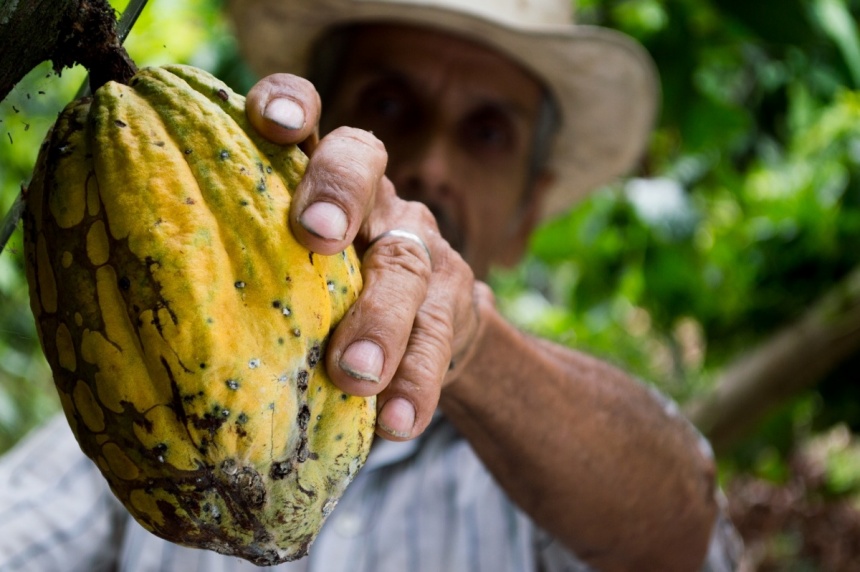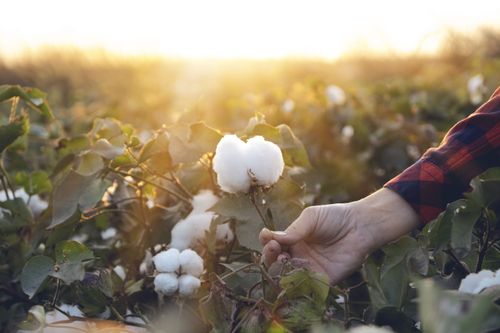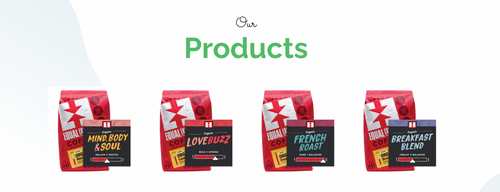The world consumes an estimated 7.2 million metric tons of chocolate each year, making it one of the top-selling commodities in the world. Due to the world’s love of chocolate, fundraising by selling chocolate is one of the most popular routes to raise funds. For example, each year, thousands of schools, clubs, and non-profit organizations raise money by selling See’s Candy.
However, the dark side of the chocolate industry makes the practice of fundraising with chocolate an ethical dilemma. Most non-profit organizations and charities only desire to do good for the world, but by selling chocolate that is not Fair Trade or Organic, organizations are contributing to an industry that thrives off child slave labor and harms the environment.
In order to raise money while selling chocolate ethically, non-profits and charities must sell chocolate that is Fair Trade and organic. If they don’t, they run the risk of supporting slave labor and dangerous growing practices. Read on for our five reasons to fundraise with Fair Trade and organic chocolate brands.
1. Fair Trade Chocolate Doesn’t Use Child Labor
Most of the world’s raw chocolate comes from West Africa. According to a report by the U.S. Labor Department in 2015, more than 2 million children were engaged in dangerous labor in the cocoa-growing regions of West Africa. In 2010, major chocolate companies like Hershey’s, Mars, and Nestle’ committed to reducing child labor by 70% by 2020, but a leaked study by the University of Chicago shows that there is actually more child labor happening now than in 2014.
To be certified Fair Trade, a chocolate company must prove that no child labor, forced labor, or slave labor is used to harvest and process the cacao where their chocolate comes from. Fair Trade certifiers have strict guidelines and require companies to trace their supply chain and be transparent. By fundraising with Fair Trade chocolate brands, such as TCHO Chocolate and Alter Eco, you can be assured that your organization is not inadvertently supporting child slave labor.
2. Fair Trade Chocolate Helps Ensure Farmers Get Paid a Fair Living Wage

Most cacao farmers live on less than a dollar a day, due to the extremely low price of cacao and chocolate. Although they work tirelessly, their crops can barely bring them enough money to eat. This causes many farmers to take shortcuts in their processes, utilize slave labor, and work in dangerous ways.
Fair Trade standards ensure that chocolate farmers get paid a fair living wage, even when volatile market prices fluctuate, by requiring a minimum price per pound. After global cocoa prices dropped by almost one-third in 2018, the Fairtrade Minimum Price for conventional cocoa was raised from $2,000 to $2,400 per metric ton of traditionally grown cocoa and to $2,700 for organically grown cocoa. This means that cocoa farmers who grow by Fair Trade standards know they can always expect a good price for their product. If the global market price rises above this minimum, they can negotiate for an even better price.
3. Fair Trade Chocolate Supports Communities
Farmers that operate by Fair Trade standards also receive an extra community fund amount on top of what they get paid for their chocolate. That money is deposited into an account where a co-operative of farmers can decide democratically how they want to use the money to improve their businesses and communities.
For example, they may spend a portion of the money investing in their processing equipment to become more efficient and profitable. They might dedicate another portion to becoming more sustainable and another portion to improving the lives of workers and surrounding community members, like improving roads or providing education.
4. Organic Chocolate is Better for the Environment and Farmers
Conventional chocolate and sugar are grown with the help of harsh chemical herbicides, fertilizers, and pesticides. These chemicals are linked to numerous health risks, and not only pose a threat to the farmers using them but also to the land the chocolate and sugar are grown on. Farmers in developing countries often don’t have the protective gear necessary to safeguard them from the effects of harsh chemicals. When these chemicals end up in the soil, they can have devastating effects on ecosystems on a farm and surrounding areas.
Organically grown chocolate and sugar are produced using biodynamic and organic fertilizers and pest deterrents. These natural products pose little to no risk to farmers and the environment where chocolate and sugar are grown. Organic growing methods protect farmers and the planet. Likewise, organic cacao is often grown in a more sustainable way. Conventional chocolate farms often clear forests to make huge plots in the sun, which destroys the balance of the soil and surrounding ecosystems.
5. Organic Chocolate is Better to Consume
Organic chocolate doesn’t contain traces of nasty chemicals. When you consume organic chocolate, you’re consuming something grown in a healthier way, most likely by a small farm that deserves your support. By only fundraising with organic chocolate, you’re enabling your supporters to make a healthier choice and avoid products that may contain harmful chemicals.
Get Started Today
Now that you know all the reasons to fundraise with organic and Fair Trade chocolate instead of See’s candy, you’re probably excited to get started! Donor360 makes it easy to do just that. Our catalog is full of not just amazing organic and Fair Trade chocolate, but also coffee, stuffed animals, and more. Create an account with Donor360 to get started! Have more questions? Talk to our fundraising specialist, Kristen, at kristen@donorthreesixty.com.






